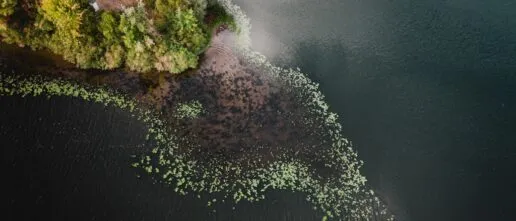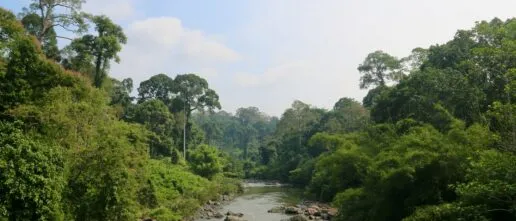The island of Borneo supports high levels of biodiversity including in its unique tropical forests. However, decades of selective logging have altered these ecosystems changing their structure and functioning. The remaining forest has also become reduced in extent, fragmented and isolated as large areas of selectively logged forest are converted to agriculture – mainly plantations of palm oil.
The Leverhulme Centre for Nature Recovery is working with local and international partners to examine the recovery of forests in Borneo. Our work continues and builds on long-running collaborations and utilizes the exceptional portfolio of research sites facilitated by the South East Asia Rainforest Research Partnership including the Danum Valley ForestGEO plot, the SAFE project and Sabah Biodiversity Experiment.
Our research will evaluate the success of passive and active restoration techniques in restoring tropical forests and assess their condition relative to comparable old growth forest. We will do this using a combination of traditional field data collection and modern remote sensing techniques (including lidar and eco-acoustic approaches).
Related Outputs
Positive effects of tree diversity on tropical forest restoration in a field-scale experiment
Experiments under controlled conditions have established that ecosystem functioning is generally positively related to levels of biodiversity, but it is unclear how widespread these effects are in real-world settings and whether they can be harnessed for ecosystem restoration. We used remote-sensing data from the first decade of a long-term, field-scale tropical restoration experiment initiated in […]
Positive effects of tree diversity on tropical forest restoration in a field-scale experiment
Active restoration of selectively logged forest The dipterocarp trees that dominate the lowland forests of Southeast Asia have traits that mean they may be slow to naturally recover from selective-logging and other disturbances. Can active restoration techniques accelerate forest recovery? Our research uses the experimental treatments of Sabah Biodiversity Experiment to assess the effectiveness of […]
Tree growth and survival are more sensitive to high rainfall than drought in a seasonal forest in Malaysia
Global change research has largely focused on the effects of drought on forest dynamics while the importance of excessive rainfall that can cause waterlogged soils has largely been assessed in riparian zones or seasonally flooded sites. However, increased rainfall may also cause decreased growth and survival of tree species in lowland aseasonal tropical forests due […]
Tropical forests post-logging are a persistent net carbon source to the atmosphere
Carbon sources and sinks in recovering logged forests Are recovering logged forests a carbon sink due to increased tree growth rates or a carbon source due to carbon losses from soil organic matter and deadwood? Our research shows that sources outweigh sinks for at least the first decade after logging.



